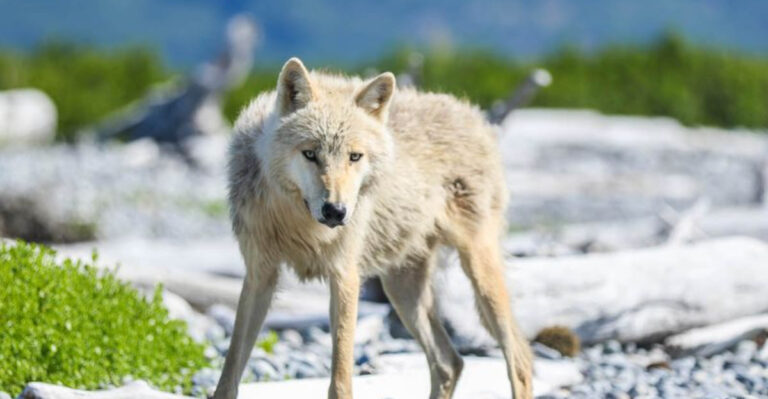9 Dangerous Monkeys You Should Never Underestimate (And 5 Friendly Ones You Can Safely Interact With)
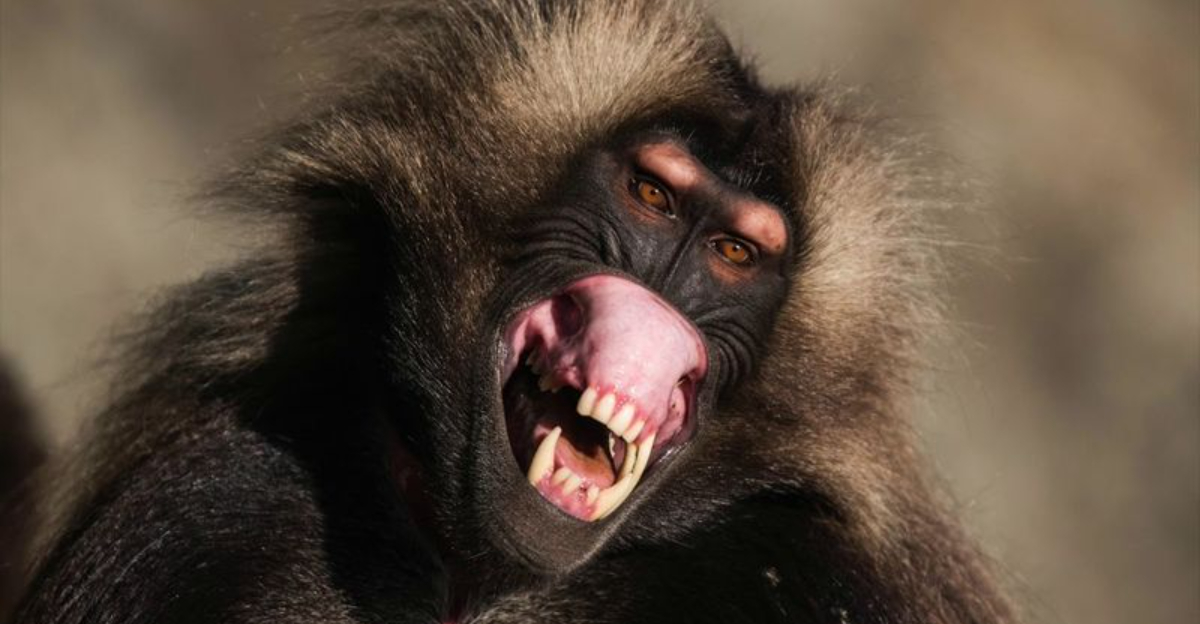
Ever wondered which monkeys you should steer clear of and which ones might make good companions? The primate world is full of fascinating creatures with wildly different temperaments.
Some monkeys pack a punch with sharp teeth, aggressive behaviors, or surprising strength, while others have evolved to be gentle and sociable. Let’s explore which simian friends deserve our respect from a distance, and which ones might welcome a friendly interaction.
1. Mandrill
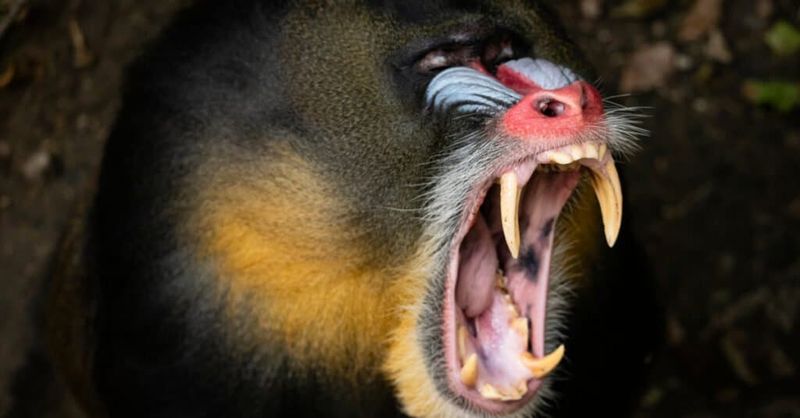
Behind those rainbow-colored faces lurk the longest canine teeth of any primate. Males weigh up to 119 pounds and can tear through flesh with ease. Their territorial aggression makes them particularly unpredictable, especially during mating season.
Even zoo professionals maintain extreme caution around these powerful creatures.
2. Chimpanzee
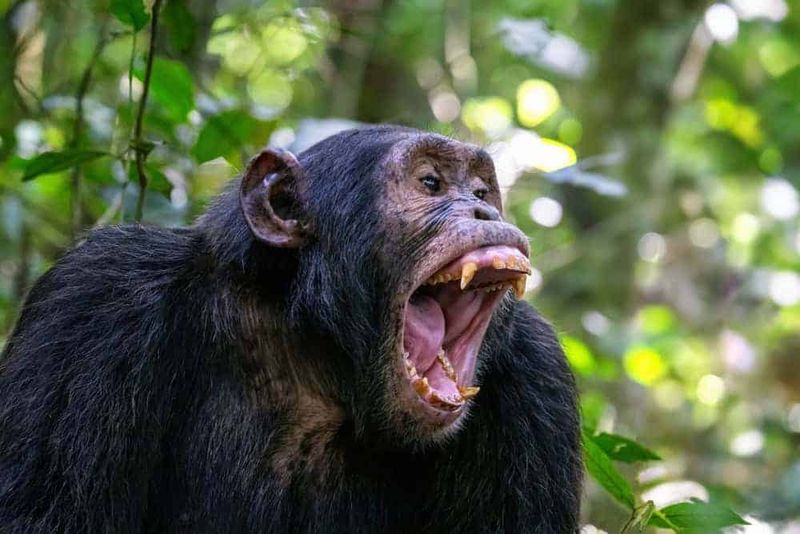
Four times stronger than humans despite their smaller size, chimps can snap bones with alarming ease. Wild chimps organize hunting parties and have been known to attack humans unprovoked.
Their intelligence makes them especially unpredictable when agitated, capable of holding grudges and planning strategic attacks.
3. Baboon
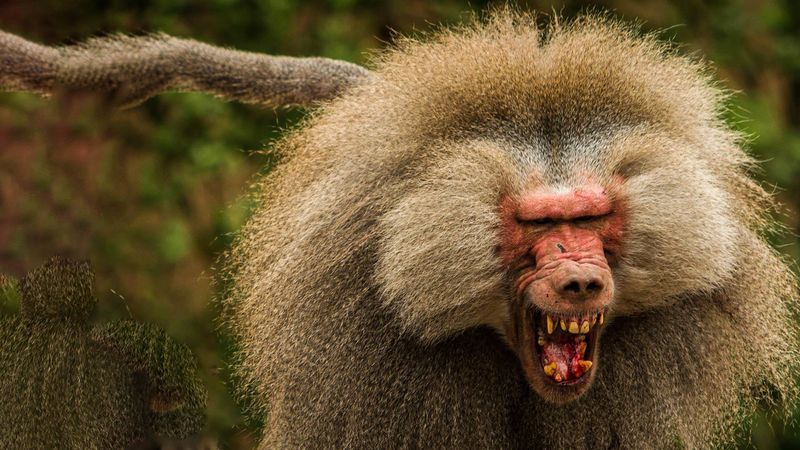
Armed with razor-sharp canines and lightning-quick reflexes, baboons don’t back down from confrontation. Males can weigh up to 90 pounds and routinely intimidate predators much larger than themselves.
In South Africa, baboon gangs have been known to raid homes and attack people who get in their way.
4. Rhesus Macaque
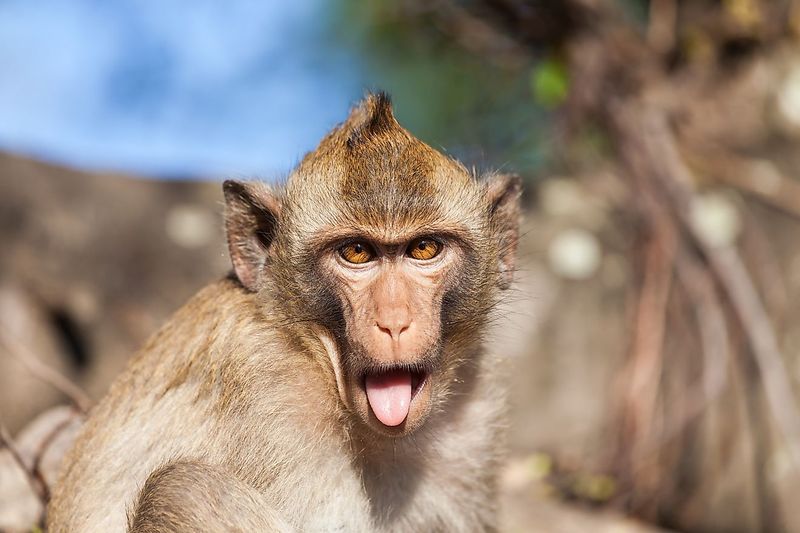
Don’t let their cute appearance fool you! These monkeys frequently carry herpes B virus, which can be fatal to humans. In cities across Asia, they’ve formed aggressive gangs that snatch food, phones, and wallets from unsuspecting tourists.
Their intelligence allows them to coordinate attacks and remember those who’ve wronged them.
5. Black Howler Monkey
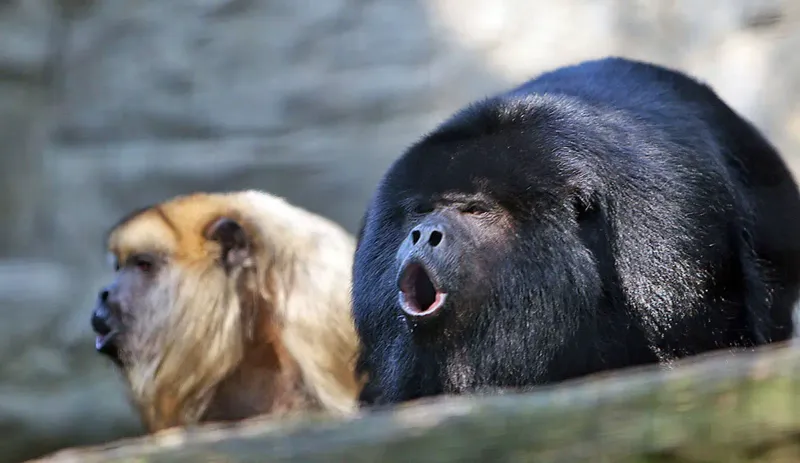
With calls that can travel three miles through dense jungle, these vocal creatures defend territory fiercely. Though not typically aggressive toward humans, they become unpredictable when cornered or threatened.
Males use their impressive vocal abilities to intimidate rivals and have been known to throw branches at perceived threats.
6. Patas Monkey
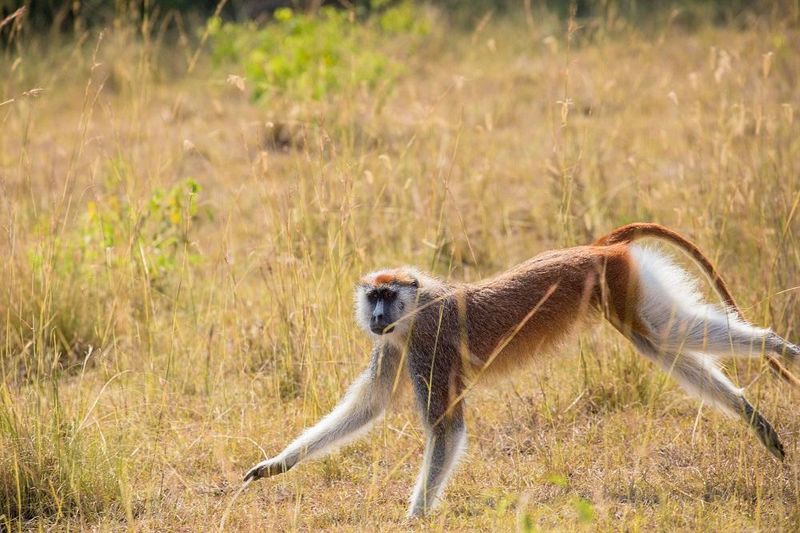
Reaching speeds of 35 mph, these ground-dwelling monkeys are impossible to outrun. Their quick temper matches their velocity, making encounters potentially hazardous. Males defend their harems aggressively.
Sharp claws and teeth combine with their incredible speed to make them formidable adversaries when threatened or cornered.
7. Golden Snub-nosed Monkey
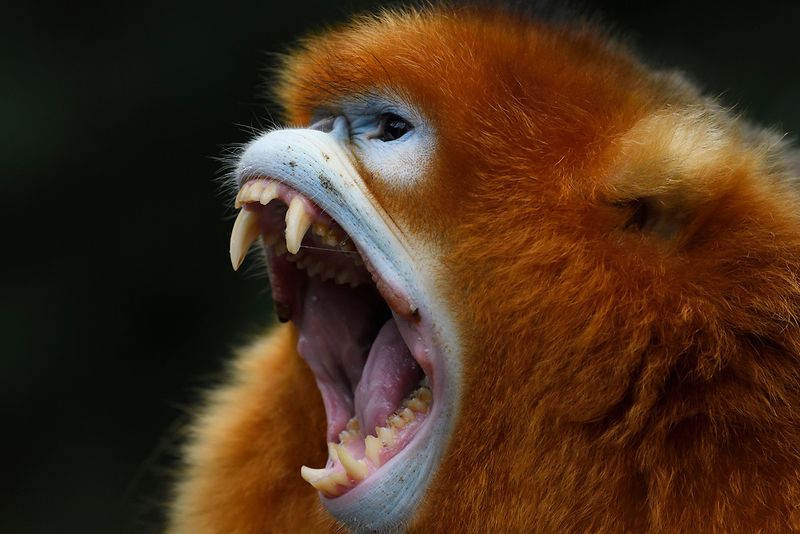
Found in China’s mountainous forests, these striking blue-faced monkeys with golden fur might look like plush toys, but they’re surprisingly territorial. Males engage in brutal battles for dominance.
Their powerful jaws and sharp canines can inflict serious damage when they feel their group is threatened.
8. Proboscis Monkey
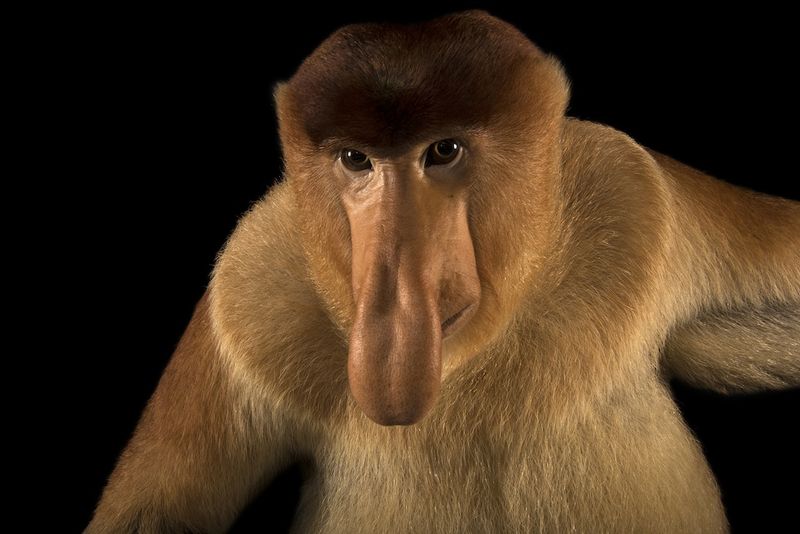
Famous for their bulbous noses, these endangered primates can suddenly turn aggressive when startled. They’re exceptional swimmers who can dive underwater to escape threats – or to surprise you from below.
Males can weigh up to 50 pounds and use their large size to intimidate rivals and predators alike.
9. Gelada Baboon
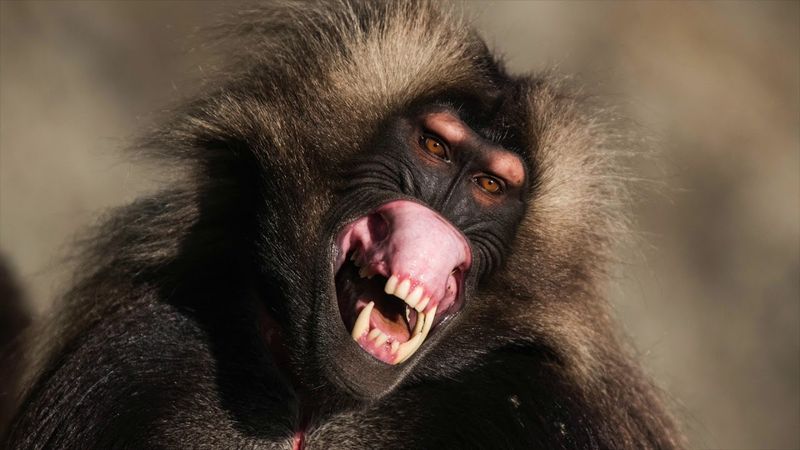
Despite their vegetarian diet, these Ethiopian highlands monkeys pack a serious punch. When threatened, they flash a frightening “lipflip” display revealing formidable fangs.
Males control harems of females and will viciously attack any perceived competition. Their social politics are complex and volatile, making them unpredictable around humans.
10. Squirrel Monkey
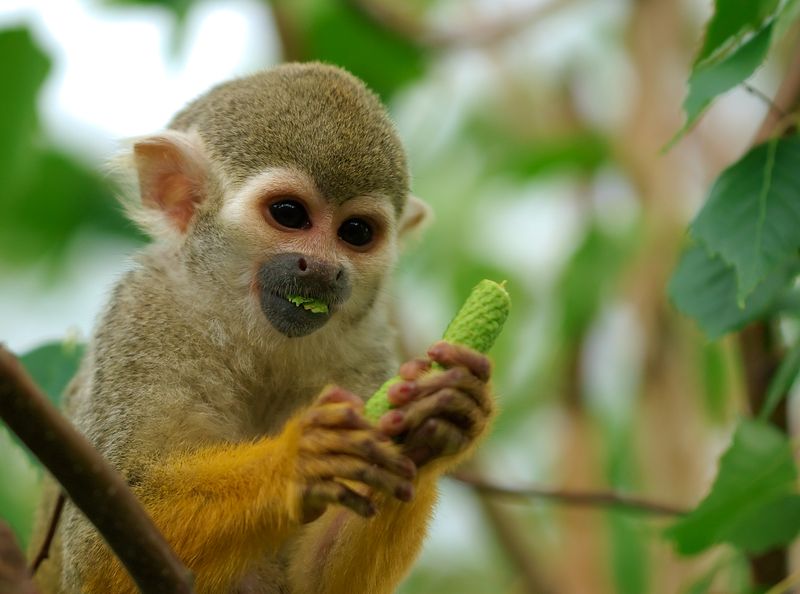
Barely weighing a pound, these tiny creatures with adorable white faces are among the gentlest primates. They’re naturally curious rather than aggressive, preferring to flee rather than fight when startled.
Their diet consists mainly of fruits and insects, with no interest in challenging creatures larger than themselves.
11. Bonnet Macaque

Common around South Indian temples, these sociable monkeys have coexisted with humans for centuries. They’re known for their distinctive cap-like hair formation and relatively calm demeanor compared to other macaques.
While still wild animals deserving respect, they rarely show aggression unless provoked or protecting young.
12. Common Marmoset
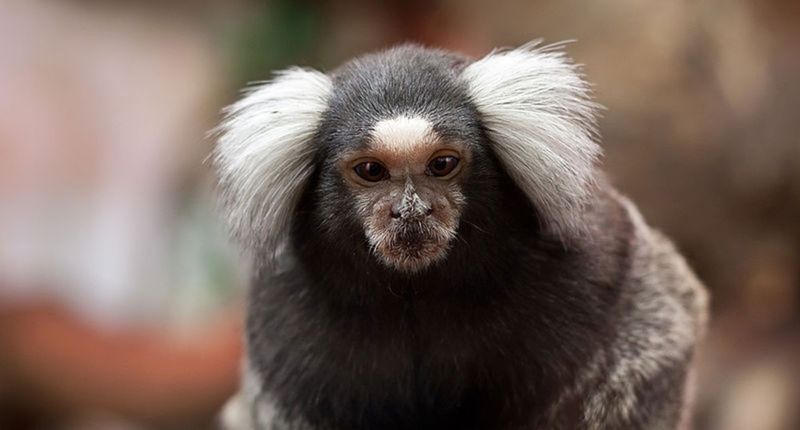
Weighing less than a pound, these tiny primates form strong family bonds and can even recognize human faces. Their natural curiosity makes them engaging companions in controlled environments.
Unlike larger monkeys, marmosets lack the strength to cause serious harm and typically respond to stress by hiding rather than attacking.
13. Black-capped Capuchin
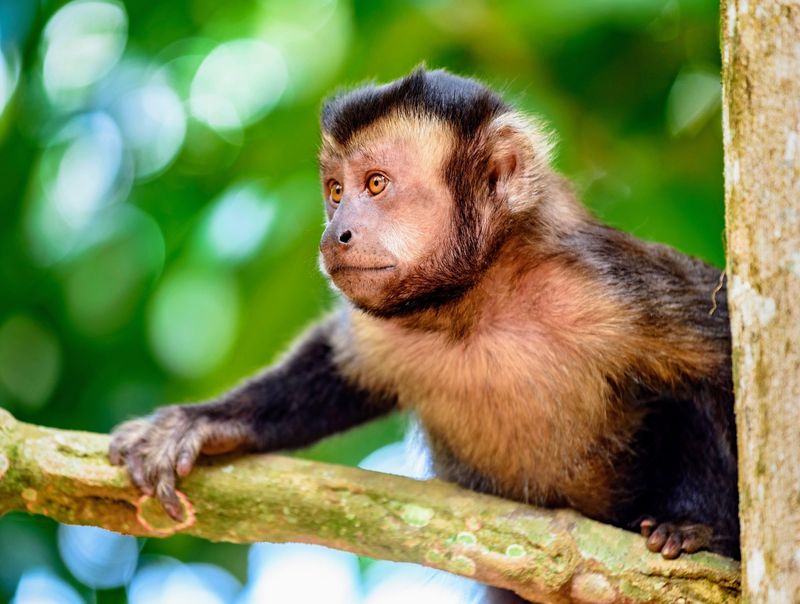
Made famous by organ grinders and the movie “Night at the Museum,” these intelligent monkeys can form strong bonds with humans. Their problem-solving abilities rival those of chimpanzees, but without the aggressive tendencies.
Capuchins naturally use tools and can be trained to assist people with disabilities.
14. Cotton-top Tamarin
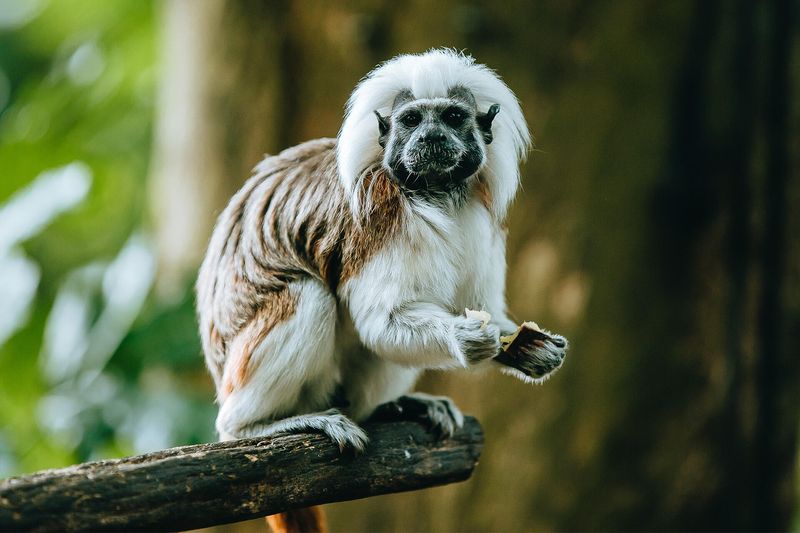
Sporting rock-star white hairdos, these critically endangered primates are known for their gentle, cooperative nature. They live in family groups where fathers take an active role in raising young.
Their tiny size (less than a pound) and naturally cautious personality make them non-threatening to humans, though their conservation status means interactions should be limited.

